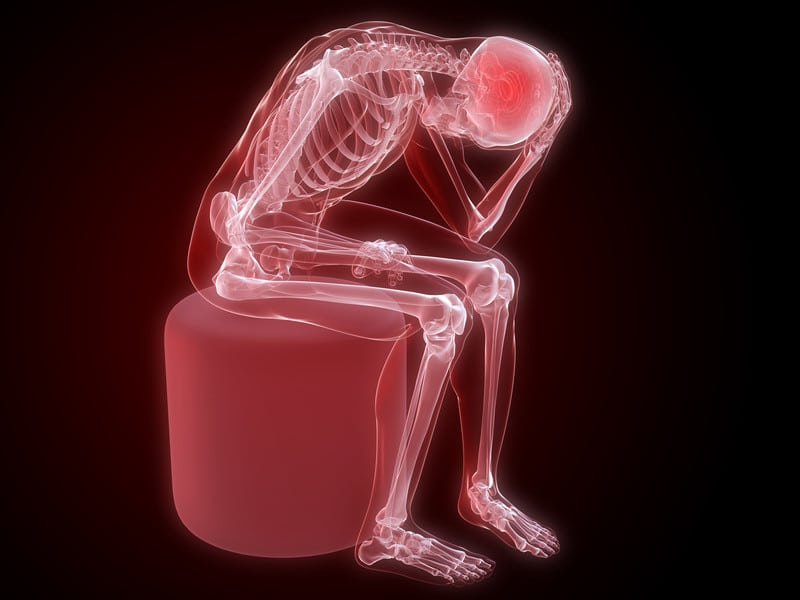
How can your jaw affect your head, neck and back?
When your bite is in proper alignment your jaw operates smoothly, but when it becomes imbalanced due to trauma, injury or damaged teeth, even routine functions can place an extraordinary amount of increased stress on your temporomandibular joints (TM joints).
When you consider how many times per day you chew, bite, talk, laugh or yawn, it is no wonder that this can lead to discomfort and further damage. If left undiagnosed and untreated, this seemingly small problem can lead to an agonizing jaw dysfunction known as a TMJ disorder.
Additionally, because your jaw is connected to other muscles, nerves and soft tissue, a ripple-down effect can occur and cause many other physical issues, including:
- Neck and back pain
- Ringing in the ears
- Muscle stiffness and spasms
- Aching jaw and teeth
What treatment options are available?
Fortunately, you do not have to continue to live with daily pain. There are several excellent modern methods designed to help correct your misaligned jaw and relieve your TMJ symptoms.
From TMJ orthotics designed to temporarily normalize your bite to a full mouth reconstruction for a more permanent resolution of the dental issues causing your jaw misalignment, there are both therapies and procedures that can help to relieve your suffering and improve your dental health.
How can you find out if TMJ is the cause of your symptoms?
The first step to finding out if a jaw problem is behind your back, neck or had pain is to schedule a consultation with your Milwaukee dentist. Using the principles of neuromuscular dentistry, he or she will be able to examine your jaw function and help you find treatment.
